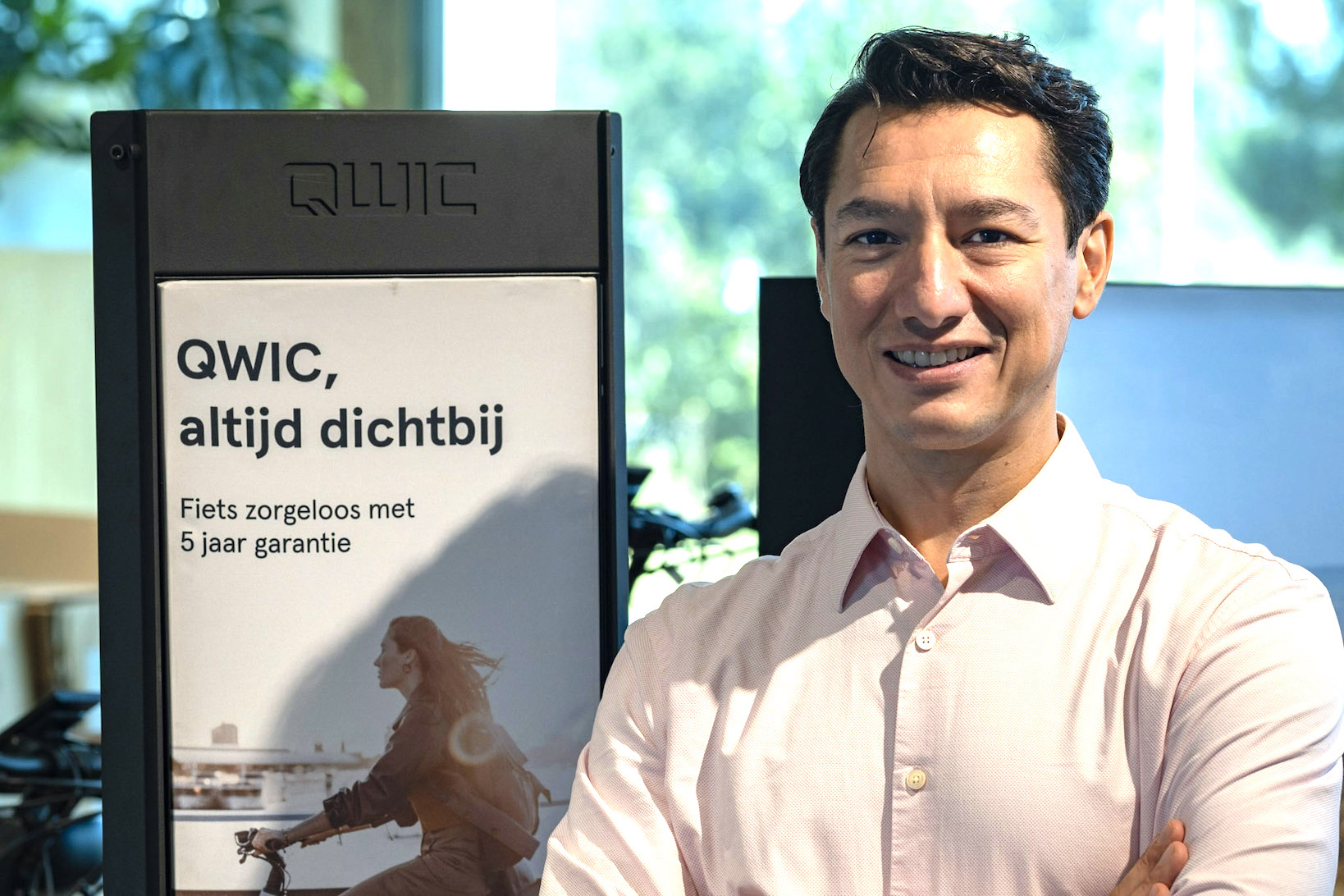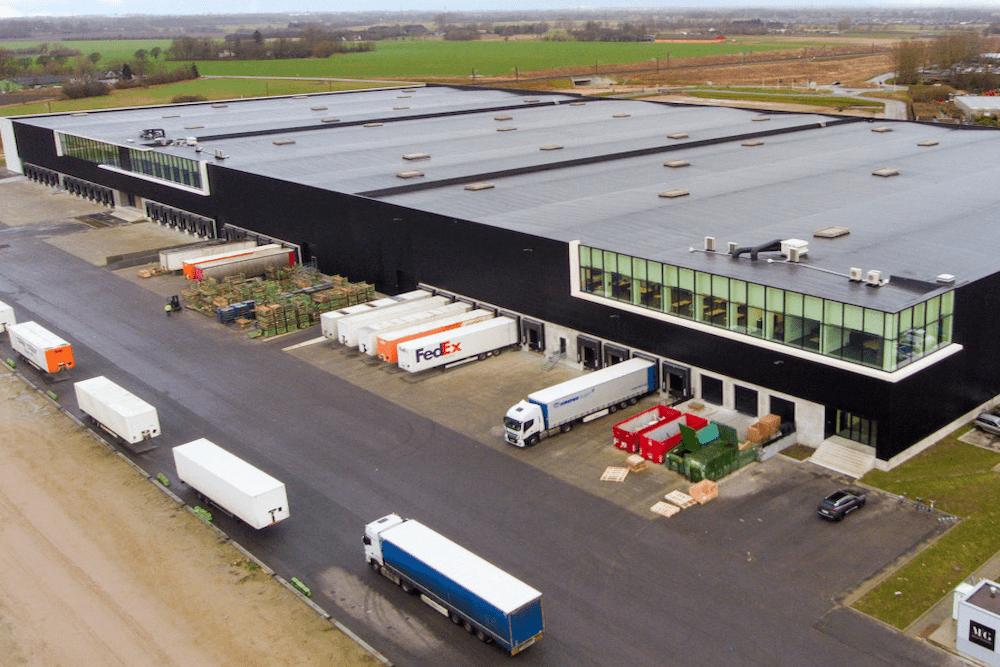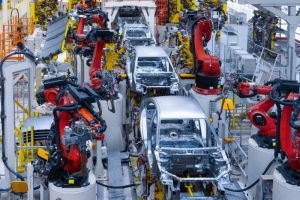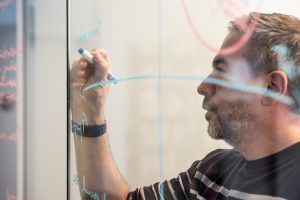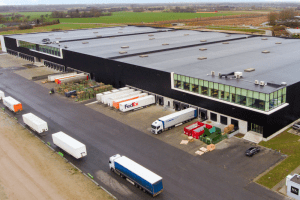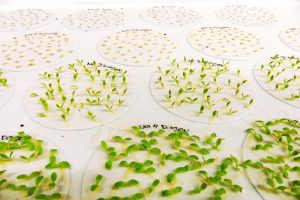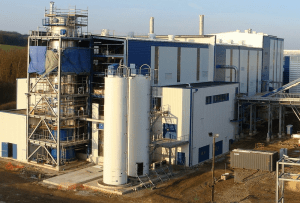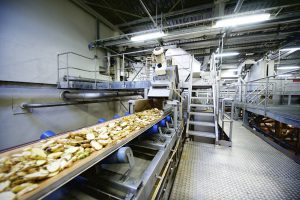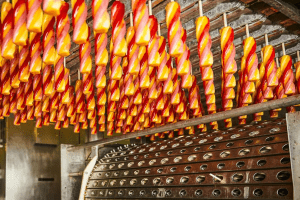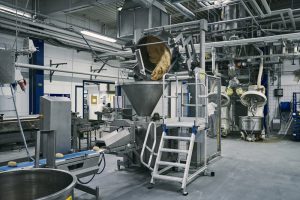He calls himself a “disruptive enthusiast” on his LinkedIn profile. He knew very early on that he wanted to go in the industrial engineering direction, as early as the age of 11. Determined, he took university entrance exams at 18e in his native Turkey. “I love working on and with systems because I always see opportunities to optimise things and make them work better. I knew early on: this is my passion, this is what I want to do.”
The penchant for change and optimisation later brought Egemen Tumtürk into the supply chain playing field. “By looking at the footprint and scale and how to optimise it, you first have to optimise the processes or subsystem. Step by step you then work towards a change.” The MBA he took gave him the necessary general business knowledge. “If my direction is optimising systems, I need to have the full overview,” Tumtürk said of the added value of taking an MBA and later, through the Stanford Business School, a course focused on business innovation. Egemen’s ambition was to define growth strategies, lead transformations and deploy innovations in the process. All the knowledge gained in his career serves him very well to this day, with disruptive supply chains becoming the new normal.
Early in your career, you moved to China. What triggered you to leave?
“I quickly noticed from making several business trips to Asia for an employer in consumer electronics that it is a completely different way of working there. People are very dedicated in everything they do. I very much wanted to run a global operation. In Turkey, it’s more the local market you serve anyway. To stay in Turkey was therefore never my ambition. In total, I lived and worked with my family in China for nine years. First for Kärcher and later for Bugaboo.”
What was your role and responsibility within Bugaboo?
“Through Inpired Search, I was introduced to the COO of Bugaboo. He gave me a very clear picture of what he wanted to achieve in terms of a global sourcing operation. It was up to me to set up a global team and, together with the supply chain director, set up a global supply chain to bring new products to market, using new technologies and keeping the footprint in mind. We expanded, but in addition, we better spread supply chain risks across low-wage countries, such as Vietnam, where a portion of accessory portfolio came from during that period. We did not only spread the supply chain risk to low wage countries but also set final assembly of some newly introduced products in The Netherlands and Italy so that we brought speed and flexibility in delivering our products to end consumer.”
So you were actually spreading supply chain risks before COVID. Good timing!
“Yes. In hindsight, we had indeed thought it through well. Many companies only started looking at this through COVID. Just before COVID, I came to work for Bugaboo from the Netherlands.”
What do you think are the main cultural differences between working in Turkey, the Far East or in the Netherlands?
“A Turkish organisation wants to be structured and forward-looking just like a Western organisation. On the other hand, they are also pragmatic and as fast as Asian organisations. Those two approaches clash. You have to make a choice. I have found the speed in China to be great. But it’s about managing inefficiency. Your success depends on how big the inefficiency is. It is an iterative process. What I see here in the West is more structured thinking about the conceptual phase. This process takes more time, but then there is a solid plan as the key to the solution.”
And now working at electric bike manufacturer Qwic in the Netherlands
“The company was founded in 2006 and was quite early in marketing electric bikes. The idea came about when the founders took a long bike ride from Beirut to Beijing in China and saw electric bikes there. They brought this technology to the Netherlands. We now sell bikes in Germany, Belgium and Austria, in addition to the Netherlands. We personally think we are still in the growth phase and want to scale up even further in Europe with a limited range of premium electric bikes in the category above 2,500 euros. Qwic’s underlying goal is to get people out of their cars and into cycling more. We hold 3-5% market share in premium segment.
Besides supply operations, my role also covers customer operations which includes, logistics, return flow, customer and technical service. A total of 140 people work at QWIC.”
What are your main supply chain challenges?
“First, you see that the industry finds the transition from traditional bikes to electric bikes difficult. We as a company have never sold traditional bikes, so we don’t have to switch over ourselves, but many parts for electric bikes do come from the same suppliers as traditional bikes. They have to predict both flows. Some suppliers have survived in this transition, some have not. In addition, COVID has led to longer delivery times and rising prices for parts. It also affected capacity planning and allocations within the supply chain. Then, when the war in Ukraine started and a recession followed, that was the third blow. And actually, all this happened in a short period of time. The recession also caused demand to change.”
Will it stay there you think?
“I think in the next 10 years we will face more disruptions followed by a period of inventory shortages. We have therefore made our supply chain agile. Being able to adapt quickly, that is the key for us to cope with external factors. We shortened time to market and looked closely at replenishment and challenged ourselves by asking: why do I need this part from that particular location? We looked at where the biggest optimisation could be achieved. And in doing so, we started with our customers. They need a steady stream of new bikes that they can sell at the right price and of the right quality. We started translating that to all departments and our suppliers, looking very critically at parts stock locations. We moved closer to the suppliers by setting up procurement teams in Asia. The assembly of the bikes takes place in Europe. We are trying to make the chain shorter and more transparent. On a scale of 1 to 10, we are now at a 5 or 6 in that process.”
What are the results so far?
“To give an example. We avoided 10-15 million in lost sales by stocking critical parts in Europe. By setting up local procurement teams in Asia, our relationship with suppliers has improved. We are currently still building on improving transparency and cooperation so that we can tackle any problems together. This also requires systems, systems that can communicate with each other. This allows us to improve the supply chain even further, optimise transport and deliveries to customers and reduce our footprint. We want to give customers insight into where and how the product is made, what parts are used and when it is delivered. After all, when consumers spend 3,500 euros on a bicycle, they want to know where they stand.”
